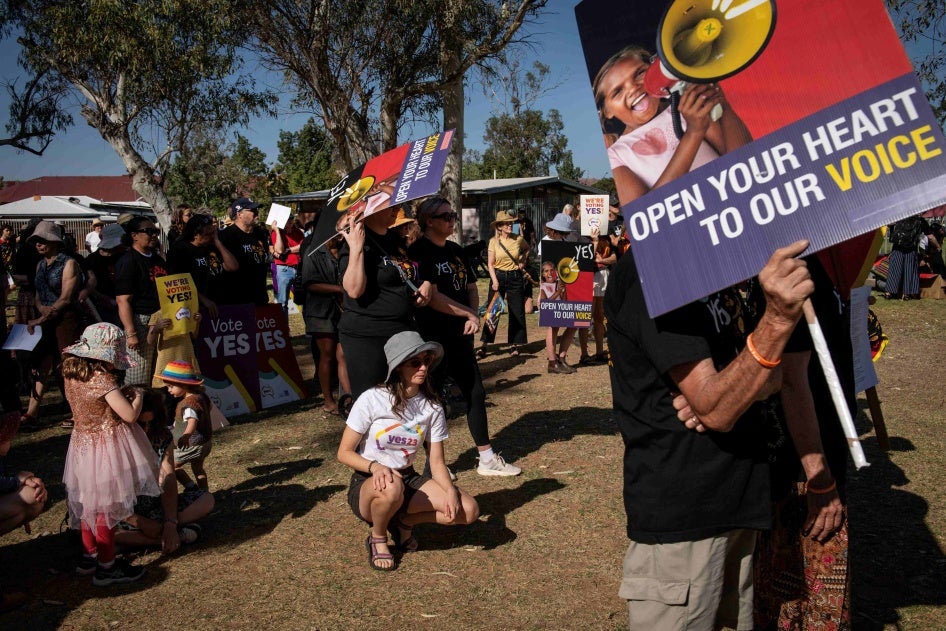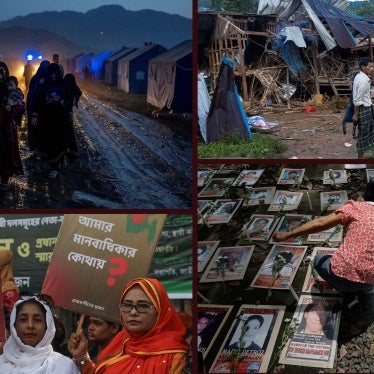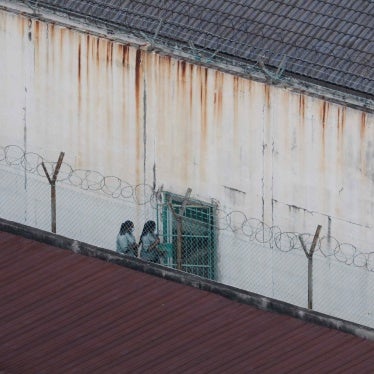(Bangkok) – The Australian government’s progress on human rights over the past year was undermined by continued abuses against refugees and asylum seekers, Human Rights Watch said today in its World Report 2024. The longstanding problems of the overrepresentation of First Nations people in Australia’s prisons, and mistreatment of children in juvenile detention persisted.
“The Australian government had an opportunity in 2023 to end its more than decade-long offshore detention regime when the last refugee was evacuated from Nauru island in June,” said Annabel Hennessy, Australia researcher at Human Rights Watch. “Yet just months later in September, the Australian authorities sent a group of 11 asylum seekers for detention on Nauru, and another 12 in November.”
In the 740-page World Report 2024, its 34th edition, Human Rights Watch reviews human rights practices in more than 100 countries. In her introductory essay, Executive Director Tirana Hassan says that 2023 was a consequential year not only for human rights suppression and wartime atrocities but also for selective government outrage and transactional diplomacy that carried profound costs for the rights of those not in on the deal. But she says there were also signs of hope, showing the possibility of a different path, and calls on governments to consistently uphold their human rights obligations.
In October, the government held a referendum to enshrine a First Nations’ Voice in the country’s constitution. While this was unsuccessful in every state, Australia’s state and federal governments remain obligated to uphold the rights of Aboriginal and Torres Strait Islander people, which should remain a priority.
Indigenous people are significantly overrepresented in the criminal justice system, with Aboriginal and Torres Strait Islander people nearly one-third of Australia’s adult prison population, but just 3 percent of the national population. At least 19 Indigenous people died in custody in 2023, including a 16-year-old First Nations boy who died after harming himself in pretrial detention in October following prolonged solitary confinement.
The Royal Commission into Violence, Abuse, Neglect and Exploitation of People with a Disability released its final report in September. The commission found that Australians with disabilities face pervasive abuse and raised serious concerns regarding poor prison conditions, including excessive use of solitary confinement, sexual exploitation by fellow prisoners, and lack of access to mental health services.
In September, Queensland suspended its regional Human Rights Act for the second time to allow the police to detain growing numbers of children indefinitely in police watch houses, which are concrete cells typically used to detain adults for short periods.
Australia remains the only Western country without a national human rights act or constitutional charter. The Parliament has been conducting an inquiry on the country’s human rights framework and is currently considering developing a human rights charter.
The Australian government has had some achievements in 2023 advocating for human rights on the international stage but needs to do more, particularly in the Asia-Pacific region.
Australian government diplomacy successfully led to the release of an Australian citizen, the journalist Cheng Lei in October, from arbitrary detention in China. She had been imprisoned for three years.
However, Australia still has not taken concrete action to address human rights concerns with the Chinese government or with regard to other arbitrarily held Australian nationals. Australia has not imposed any Magnitsky-type sanctions on Chinese officials for crimes against humanity in Xinjiang.
In July, the Australian government also secured the release of a Vietnamese-born Australian citizen, Chau Van Kham, a democracy activist, after he spent four years in a Vietnamese prison for his political beliefs.









